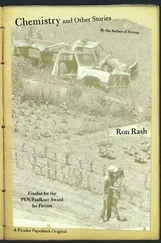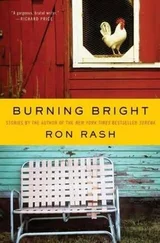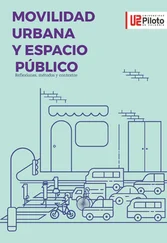She heard a train, not the one that had departed but one coming out of the mountains into the valley, a freight train. The engine stopped beside the coal chute on the station's opposite end. Rachel lifted Jacob and the carpetbag and made her way down the track to where she'd stood before. She studied the depot, the shadowy far corner where Galloway had been fifteen minutes earlier. He wasn't there. The last of the coal clattered from the chute, and the train began moving. The engine passed in front of the depot, and when several cars had done the same Rachel gathered up the carpetbag and Jacob and walked rapidly toward the train, exposed now not just by the moon but the depot's yellow glow. She stepped onto the closer track, the train passing slowly in front of her. The fifth car gaped open, but Rachel didn't reach it in time. Six more cars creaked by before another was open. She set Jacob and the carpetbag inside, then jumped in herself. The train moved past the old boxcar and soon the darkened backs of buildings.
He was coming, beside the caboose but closing the distance between them one boxcar at a time, not even running but still gaining steadily. He stumbled, got up, and came on. He was smiling and his index finger waved in admonishment. She'd never known fear had a taste, but it did. It tasted like chalk and metal. Rachel pushed Jacob deeper into the car, so deep the child's back pressed against the rattling steel. Rachel's ribs tightened around her heart like a vise-grip.
The train sped up but not enough. Galloway's face appeared beside the car. He trotted now, his hand outstretched. A lanyard made from a dingy piece of twine was around Galloway's neck, dangling from it a dagger. Rachel thought of the bowie knife, but there wasn't time to get it from the carpetbag. She pulled the sock from her dress pocket as Galloway reached out his hand and gripped the door, the dagger glinting as it swayed back and forth across his chest. He continued to trot beside them, gathering himself to leap inside. The train whistle screamed like a final warning.
Galloway shoved himself halfway into the car, his head and belly on the metal floor, legs yet dangling. Rachel raised the sock to ear level. She paused, willing the pound of glass and steel to be enough, then brought it down as hard as she could on Galloway's leering face. His eyes went white. For a moment his body balanced half in and half out of the car. Then Rachel pressed her shoe heel against his forehead and shoved him earthward. Galloway tumbled into a gulley. Rachel leaned out and watched as the caboose passed where he'd fallen. She kept watching the tracks, but he did not rise. Jacob was squalling now and she gathered him into her arms.
"We're all right now," she told him. "We're all right."
There was hay on the boxcar's floor, and Rachel heaped some of it into a corner. She and Jacob lay on it, her arms around him. They were out of Kingsport now, headed south through the Smokies. They passed an occasional farmhouse, what wan light its windows shed skiffing the metal floor a moment, then gone. The rocking heartbeat of the train soon lulled the child asleep, herself as well. Rachel dreamed that she and Jacob stood in a cornfield where only a single green stalk grew. She and Jacob pulled shucks off the stalk's one ear and found not corn but a knife blade.
She woke in darkness, for a moment unsure where she was. Rachel spooned her body tighter around Jacob's and tried to fall back asleep but sleep did not come. She listened to the train passing over the rails, listened to Jacob's measured breaths. Rachel waited for the wheels to slow beneath her, and when they finally did she and Jacob got out and crossed rows of tracks, moving around stalled boxcars toward the depot. The sign above the front door said Knoxville. She went inside and checked the train schedule before asking to borrow the telephone mounted on the wall behind the counter. A collect call, she assured the depot master. She lifted the receiver to her ear and leaned toward the mouthpiece, Jacob clutching the black clothbound cord as Rachel spoke to the operator.
McDowell answered on the first ring.
"Where are you?" he asked, and as soon as she told him he asked when the next train left.
"The one we need don't leave for four hours."
"The next train," he said again, "to anywhere."
"There's one headed to Chattanooga in thirty minutes."
"Take it. Then when you get to Chattanooga buy the ticket to Seattle."
"You think he's already headed here, don't you?" Rachel said.
"I'd say it's likely."
For a few moments only static crossed the miles of lines between them.
"Just get to Chattanooga," McDowell said. "I'm going to end this tonight, end it for good."
"How?"
"That's not your concern. Go buy your tickets."
She did what he said. Thinking she hadn't offered enough money to the other depot master, Rachel handed this one a five-dollar bill. Then she described Galloway.
The depot master stared at the bill, a smile rising on his face that offered no comfort or sympathy.
"You must be in some serious trouble," the depot master said, "and one thing I've learned is folks with trouble ain't no different than folks with head lice or the shits. You get close enough to them and soon enough you'll get it your ownself."
The depot master looked past Rachel as he spoke, as if so pleased with his words he hoped a larger audience had heard them.
Rachel met the man's eyes, held his gaze until the smirk left his face. She no longer felt anger or fear or even weariness. What remained was just a numb acceptance that she and Jacob would or wouldn't survive. Something would happen or it wouldn't happen, and that was the way of it. Almost as if she was outside of herself, watching her and the child from some distant vantage point. As Rachel spoke, the coldness of her inflection felt outside herself as well.
"You'll help us or you won't, mister. You can make light of our troubles and smile at your own smartass sayings. You can refuse to take my money or take it and tell where we went anyway. You'll do what you want to do. But know one thing. If that man finds us he'll rake a knife blade across this young one's throat and bleed him dry like he was no more than a shoat in a hog pen. That blood will be on your hands, every bit as much as on him that does the killing. If you can handle knowing you done that, then go ahead and tell him."
The depot master placed a hand on the five-dollar bill but did not slide it toward himself. He no longer looked at Rachel but at Jacob.
"I won't tell him nor nobody else," he said, then handed the bill back to Rachel.
THAT NIGHT IT WAS NOT THE GLARE OF FLAMES or the smell of smoke that roused Pemberton but a sound, something heard but not registered until other senses lifted him from a restless sleep. When he opened his eyes, the bed was a raft adrift on a rising tide of smoke and fire. Serena had awakened as well, and for a few moments they only watched.
The front of the house disappeared in a wide rush of flame, as did the foyer leading to the back door. The bedroom's window was five feet away but hidden by smoke. Each breath Pemberton took felt like a mouthful of ash singeing his throat and lungs. Waves of heat rolled over his bare skin. Smoke seemed to have clouded inside his mind as well as the room, and for a second he forgot why the window mattered. Serena held to his arm, coughing violently as well. They helped each other off the bed and Pemberton wrapped a blanket around them, its fringe catching aflame when it touched the floor.
Pemberton used his last clear thought to gauge where the window would be. With his arm around Serena and hers around his waist, he led them stumbling and breathless toward the window. When Pemberton found it, he lowered his head and turned his shoulder and used what momentum they had to break the glass and wooden mullion. He and Serena plunged through the window clutching each other, the glass raining around them, twirling and refractive like a kaleidoscope. Their legs caught the sill a moment, slipped through. Then they were falling, so slowly it did not feel like falling but a suspension. Pemberton felt a moment of weightlessness as if they were submerged in water. Then the ground came rushing upward.
Читать дальше












